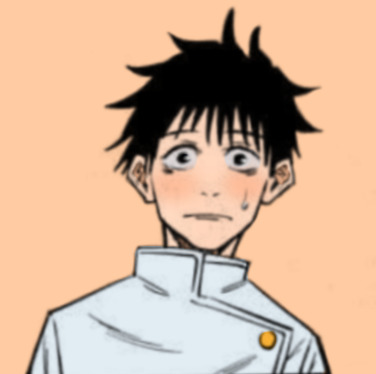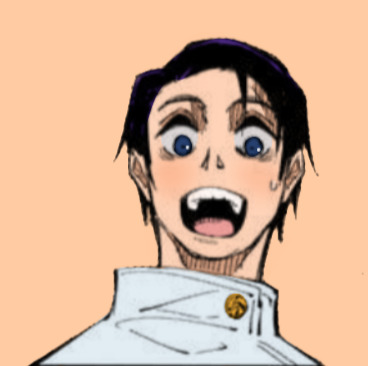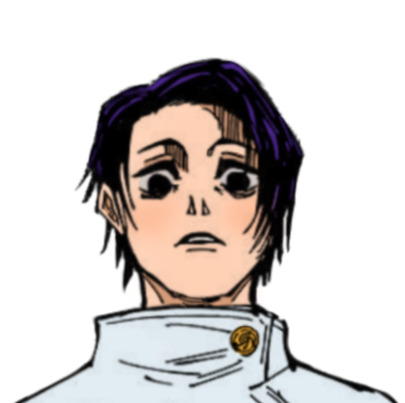Don't wanna be here? Send us removal request.
Text
I saw a lot of stuff from the deathnote fandom before I watched the show and so I 100% thought that Light and L were best friends/roommates and that despite Light being Kira and L being a detective, they both just kinda lived in domestic bliss and anytime Kira killed someone L would just sigh and tell Light to stop being predictable
3 notes
·
View notes
Text
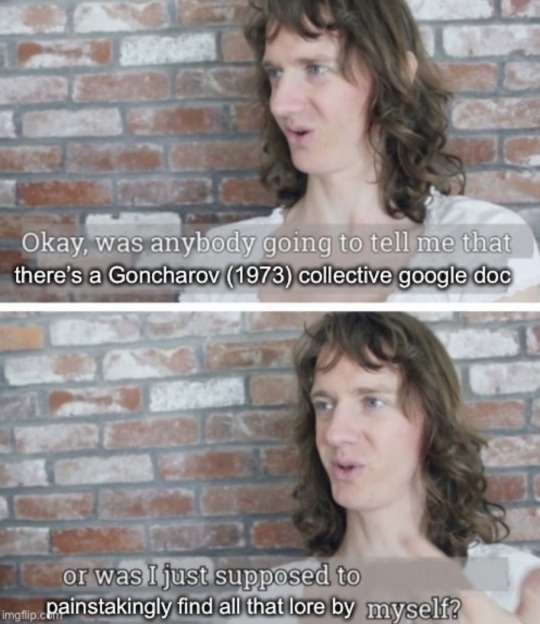
Google doc is here
Discord is here
(If the links don’t work, feel free to hit me up and I’ll try to connect you!)
29K notes
·
View notes
Text
I should start sharing more of my fanfic rec vids on here but for some reason I just rarely share my tiktok content here.
Anyhow here’s some awesome book length WLW fanfics where you can go in with zero knowledge of the fandom.
242 notes
·
View notes
Text
with everything everywhere all at once, we finally have a cinematic answer to the question “would you still love me if I was a worm?”
6K notes
·
View notes
Text
there’s something that makes me very very emotional about the fact that the main asian actors in everything everywhere all at once came to the movie on very different trajectories - michelle yeoh is an internationally recognized legend of hk action cinema, ke huy quan starred in two blockbusters as a kid before being forced to step away from acting for 20 years, james hong is probably THE single most prolific actor in hollywood, and stephanie hsu has been on broadway and tv but never starred in a major film - and yet when all of them read the script they thought to themselves “yes, this is all i’ve ever wanted”
it’s about james hong being in a triumphantly empathetic film with asian leads after 70 years of watching the landscape for asian actors change with his own eyes, it’s michelle yeoh being taken seriously as a leading actress who can anchor a movie with both humor and heart, it’s ke huy quan getting to play all the roles he never got to play over the last two decades, it’s stephanie hsu bursting onto the scene as a rising star next to all these established actors by walking the path that they helped pave
and it’s not just the actors either! andy and brian le, the film’s fight choreographers (and ahem trophy fight scene duo), learned martial arts by watching michelle yeoh’s movies growing up. when ke huy quan’s stunt double first came to america, he learned english by watching ke huy quan in indiana jones. echo quan (the film’s on-set translator) couldn’t get work in hollywood for years despite having worked extensively in hong kong cinema and eeaao was her first job in the industry. the importance of the connections we form and the thrill of new possibilities and new lives are woven into the very fabric of this movie’s creation
13K notes
·
View notes
Text
with everything everywhere all at once, we finally have a cinematic answer to the question “would you still love me if I was a worm?”
6K notes
·
View notes
Text
Okay… I was kind of content to be lazy and not go into a whole thing about all this. but i keep seeing more and more reviews and reactions and such of Everything Everywhere All At Once, and so far not a one has touched on the film having distinctly Buddhist philosophies and symbolism at its roots. So I guess I'm just going to have to do this...
To start, with only lite spoilers and rearranging of film events to fit their chronological in-world order, let me first give a run down of the film's basic shtick…

Evelynn Wang is a middle aged first generation Chinese American immigrant running a laundromat with her husband, a mousey but extremely big hearted and quirky man named Waymond. When they were young, and fell in love while living in China, Waymond convinced her to move to America with him and out of disapproval of Waymond and the move in general, Evelynn's father(unnamed) disowned her. That same father, now in poor health and apprently with no other family or support left in China, has recently flown to America from China to live out the rest of his life with the daughter he disowned and the husband he disapproved of.
So, as Evelynn gets ready for both a Chinese New Years party, and a dire appointment with an IRS auditor, her (not exactly clear on age? 20s?) college dropout daughter, Joy, is also discussing introducing her girlfriend, Becky, to her grandfather —something Evelynn does not really approve of. Also, although she is not yet aware of it, her husband, Waymond, is also attempting(and thus far failing) to approach her about the subject of divorce; not to actually divorce her, but to use the possibility of a divorce to force a frank conversation about the state of their marriage, and what Waymond sees as Evelynn's long standing and growing dissatisfaction with their life together.
(Oh, and although it was technically clipped from the final script as a concrete detail, all indications from how they are characterized inicate that Evelynn and Joy struggle with undiagnosed ADHD.)
With that as the set up for the story, this overwhelming stress in her life aligns with(or perhaps in a sort of cosmic destiny sense, triggers…) her awakening to the existence of infinite parallel universes. And she is faced with the choice to either continue her mundane life as planned, or accept this call to adventure as the savior of multiple realities.
The the threat to all existence that she is the many worlds' savior from is a kind of ascendent form of her own daughter, Joy, who in another reality was pushed to excel at reality hopping by her mother to the point where she was overwhelmed by the pressure to succeed and by the infinite possibilities of the multiverse. To escape the anxiety of an all seeing existance, this villainous Joy, dubbed Jobu Tupaki, has created a kind of blackhole as a nexus of multiple realities all collapsing onto themselves.
And, finally, to avert this world ending crisis, Evelynn must learn to channel into herself, the knowledge, experience, and skills of her many other selves. She does this at first to match and challenge Jobu Tupaki, and later to understand and potentially negotiate with her.
So what does this have to do with Buddhism?

The mytho-historical origins of Buddhism are in the life and teachings of Siddhartha Gautama, generally presented as a story of a young man living an inordinately sheltered and privileged life who has an encounter with the old, the sickly, the dead, and then an ascetic.(someone in the, often but not exclusively spiritual act of self-denial; living while refusing luxury in an act of self-discipline.) These experiences are referred to as The Four Sights.
This isn't in and of itself particularly important in the context of the film, but the first 3 sights make Siddhartha for the first time aware of the difficulties of being alive; to lose youth, to lose health, and to lose life. And he becomes aware that all living things share in these experiences, and subsequently that the individual and ego driven experience is not unique. But the 4th sight, of the man in self-denial makes him aware that people can live without attachment to those things in the first place. And this begins his spiritual journey in search of Nirvana thru, among other things, meditation. And via said mediation he becomes Bodhi:"Awakened." (from which the epithet Buddha:"Awakened One" is derived.)
Okay... so without letting this spiral too out of control... What is Nirvana? Apart from an iconic Gen X rock band fronted by Kurt Cobain?
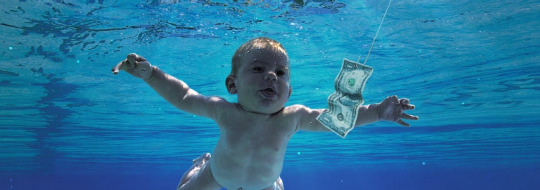
Nirvana is the state of being of having escaped from those worldly sufferings. In some, perhaps more supernatural, perspectives it can be interpreted as literal immortality, but more practically it means freedom, not from the experience of aging, but the fear of aging; If you don't value something like vanity, you don't fear its loss, and if you don't fear losing it, your life is not governed by navigating around that potential loss.
It also involves an escape from the endless cycle of death and rebirth implicit to Buddhism as a religion rooted in its preceding Hindu theology. (This same root in Hinduism is where the idea of karma comes from: the idea that what you do in one life incurs consequences in the next life, for good and for ill.) And part of the Buddha's role as an all-seeing and all-knowing figure is that he can also see his other(past) lives. This escape and the prerequisite ability to see and to understand and to empathize with all living things through your own awakening to your infinite experiences in many lives, and the universal suffering that comes with living and aging and dying, is the goal of Buddhist teaching and study; To understand your place in a much MUCH bigger picture and find peace in a life free of the push and pull of expectation and external societal pressures. That's Nirvana.
Now... In relation to Nirvana is the concept of Anatta: "The Non-self." The concept that there is no such thing as a "true self" or a "false self" and that individual identity is mutable; nothing exists in a singular finite state, least of all people. (This btw is a point of conflict for a lot of would be Buddhist scholars in the west, where it conflicts heavily with the insistence on trying to preserve or otherwise find in Buddhist philosophy some trace of the Christian "immortal soul.") And adjacent to this, the concept of Sunyata: "Emptyness"/"Nothingness."
And Sunyata is where the black circle symbolism comes from. Sunyata is literally composed of the sanskrit word for "empty/vacant/void/nothing/hollow/zero" etc… and the suffix indicating a state of being, often translated as "-like" or "as (if) __" or "-ism." In fact, the circle itself actually old enough that it shares its origins with the arabic numeral zero; It is one of the oldest and most basic human concepts of visualizing "nothing."
And it is of course the reference at the core of the Everything Bagel in Everything Everywhere All At Once. (that's right, I'm actually still talking about the movie!)
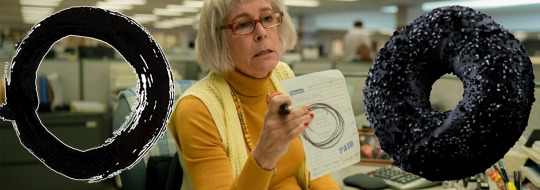
So, this is where the film actually starts its Buddhism crash course, more or less… Evelynn is caught in the endless wheel of life and suffering, or as she summarizes it, "Laundry and taxes and laundry and taxes…" And this life is disrupted by the appearance of the Sunyata, the menacing black circle Deirdre draws on one of the disputed receipts, which threatens to end everything. And indeed "Everything" is embodied in the daunting pile of receipts, in the many events taking place on this one single day, by the unspoken ADHD sensory overload, and by the existence of the multiverse itself.
Like the Buddha, Evelynn becomes aware of her other lives. But while the Buddha's understanding of the cycle of reincarnation is about past lives and their sequence, Evelynn's induction into the multiverse is the understanding of parallel lives and of alternate potentiala. This in turn manifests as what is called FOMO*(Fear Of Missing Out) a kind of jealousy and envy and anxiety that comes from feeling like you've missed your opportunities, most often triggered by seeing other people fulfilling the potentials you haven't.
*Stick a pin in this, because we'll come back to it...

So, Evelynn's path to enlightenment starts with her experiencing her other lives, but what helps move her forward is not some critical accumulation of her own experiences, it's when she realizes that the life she wants to experience, to see and understand, is her daughter's: the villain, Jobu Tupaki's experience. And she endeavors to find in that empathy some kind of peaceful resolution.
And in Buddhist art this state of heightened awareness is illustrated as the opening of the 3rd eye: The Eye of Consciousness. And the cultivation of this third eye is a core tenet of Zen Buddhism in particular; a sect of Buddhism that emphasizes self reflection thru meditation, and the contemplation and application of the Sunyata.
(There's actually a whole tangent I'm cutting here about the bodhisattva, Guanyin/Avalokiteśvara: An Indian god turned Chinese goddess, characterized as one who sees everything, who displays infinite mercy, and who has 108 different forms(including, according to the tibetan sect that revere him, the dalai lama). I think there's a definite through line here, from the Buddhist figure to Waymond to Evelynn, but it's a but much and honestly not as concrete as the rest of the symbolism at play, so I'm just tabling it...)

And it's a little less overt but the scene with the rocks over the canyon in the movie also directly evokes a meditative exercise of imagining yourself as a stone. You are stable and immobile and of sufficient size, functionally immovable; you exist in nature, as a part of nature, and in opposition to nature. You can be navigated around and over and under, and both do not disturb the scenery around you, nor are you disturbed by it, and while you may be unlike much of what is alive around you, you are none the less a part of the scene.
The emulation of a stone-like demeanor in relation to the stressors of life emphasizes that you needn't give in to the push and pull of the world around you; you don't need to capitulate to the pressures others put on you, nor do you have to assert your control over them to avoid being victimized. You can simply exist as a part of the larger picture without disturbing others or being disturbed.
(I've always attributed this to meditative buddhism in general but it turns out (I think) it was actually adopted by chinese buddhism via daoism and confusianism. The term wu-wei[無為] often translated translated as "inaction" or "action without action". Look it up for more detail, its cool stuff)

And finally the concept of Mudita: defined as joy felt on behalf of others for their own wellbeing. Opposite of things like schadenfreude and FOMO.
So, here's our return to FOMO.... I'm not sure the exact relation but the term showed up a surprising amount in interviews surrounding the film, particularly in regards to Ke Huy Quan's long absence from acting, but I get the impression this was a keyword that Daniels used during writing that spread into the way the cast talk about the film as a result. And it makes sense both in regards to the ADHD themes, the midlife crisis, and of course the resolution of the film's grappling with self-destructive nihilism.
But also, obviously, I'm sure you notice, this specific kind of "joy" is embodied directly in the character, Joy, Evelynn's estranged daughter. Because not only is the solution to Evelynn's restlessness and sense of unaccomplished life something she can overcome through the legacy of her daughter; not by her daughter's "success" in conventional means(which all context implies she has pushed her towards in the pass to the point of breakdown) but by her joy in living a self-fulfilled life. Evelynn can be happy by knowing she can allow Joy to be happy.
But also this works metaphorically, in that reconnecting with Joy means reconnecting with (sympathetic)joy. She forgot what being happy was, for herself but also for others, and by rediscovering that concept she can overcome her own dissatisfactions. And indeed the ultimate form Evelynn attains in the final fight is one of sympathetic joy, and of mercy.(see: that Guanyin theme I only briefly touched on) See used her opened 3rd eye to see the lives of other people and to grant them the joy she herself lacked and longed for, and in turn found that joy for herself. "Be kind" Waymond says, and in that kindness, that selflessness, Evelynn finds her salvation from the endless cycle of suffering of life. She becomes enlightened. She reaches Nirvana.
And this is, btw, why the film DOESN'T end with optimism and hope and individualist concepts of self-actualization and overwhleming positivity being some kind of solution to negativity and depression. And why the nihilism is non treated as synonymous with some western concept of "evil" in direct opposition to "good." Because the innately Buddhist philosophy at the roots of it is all about personal balance and being at peace with reality rather than at odds with it. And that means embracing the bigger picture, rather than trying to force it and one's self into some limited perspective of what "should" be, rather than simply what is.

Anyway that's my hectic, halfbaked rant about the specifically Buddhist backbone to this film. It is such a fascinatingly secular approach to a crash course in Buddhist philosophy, despite being so blatantly and AGRESSIVELY Buddhist in how the film embodies its philosophies.
5K notes
·
View notes
Text
I never thought that wanting desperately to connect to your grandparent and tell them about your life but also struggling to communicate and feeling awkward as a result of the language/cultural barriers would be the representation I would see in a movie but it's definitely the representation I needed
42 notes
·
View notes
Text
you know what i love the most about thor love and thunder? it feels like it’s the first mcu project in a while where no one cares about the cameos or the multiverse or whatever, it’s just taika waititi doing his thing and everybody is still unbelievably hyped for it
47K notes
·
View notes
Text
I think my love for the "right person not enough time" trope really started when I watched your lie in april when I was 13 and I've been a masochist ever since
6 notes
·
View notes
Text
Going to start reviewing shonen anime the way some people talk about shoujo
“Don’t let the Shonen Jump label fool you, this series is actually pretty good even if it opens with the same boring dude finding out he has to slay demons or whatever. The animation and music are good, they can even carry you through the longest battle scenes. The way he cares for his friends is a little cheesy but I guess it is for little boys at the end of the day haha”
8K notes
·
View notes
Text
“You have already left kudos here :)” not on this chapter bitch move over
49K notes
·
View notes
Text

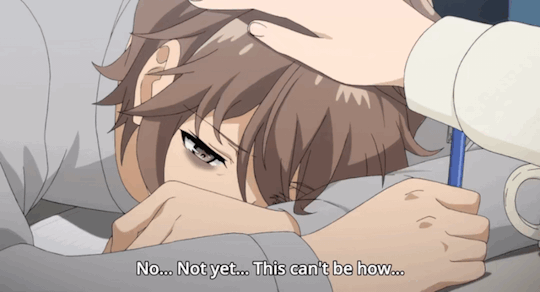
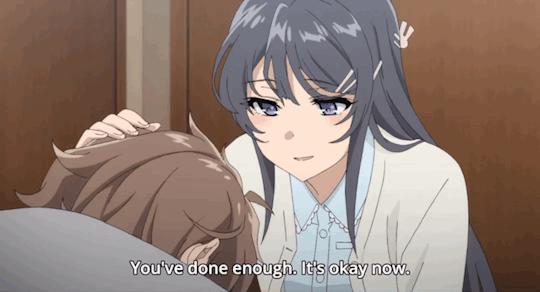
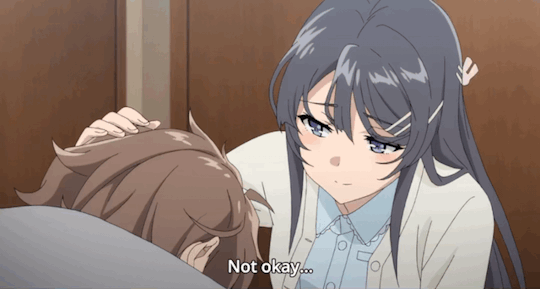
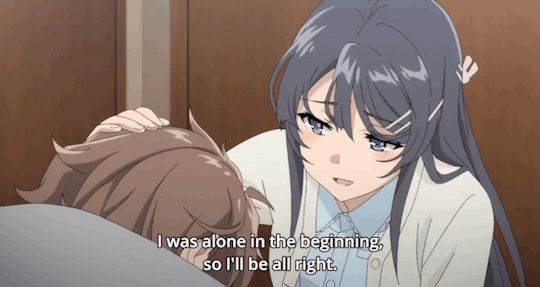


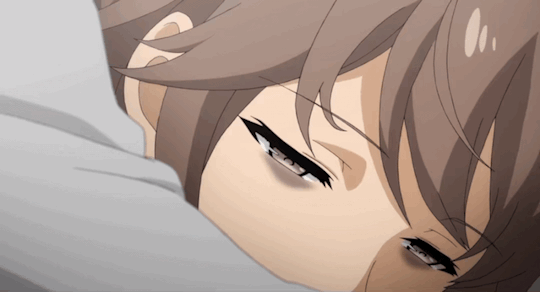

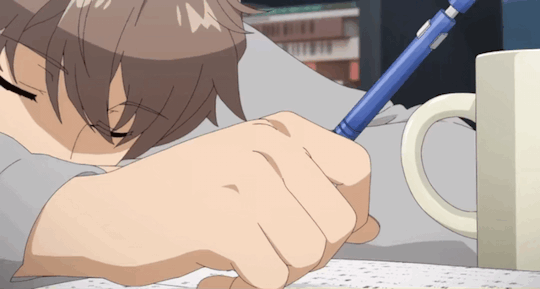
Rascal Does Not Dream Of Bunny Girl Senpai, 2018
386 notes
·
View notes




